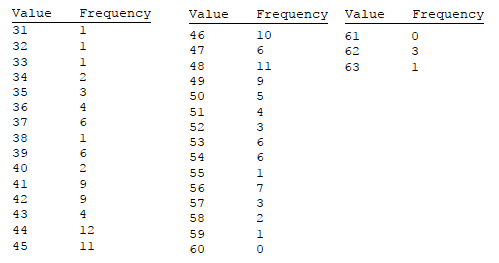Suppose we have some radioactive process and suppose we want to measure how many particles are emitted by the radioactive material in a given time (say $t=10 \text{s}$). Suppose we did $N=150$ measurements and got the following results:
where "Value" ($n$) represents the amount of particles hitting the detector in $t=10 \text{s}$.
Since we have the frequency ($f(n)$) for each value, we can calculate the "probability": $P=f(n)/N$.
Now since we suspect that this distribution is Poisson, we would like to search for the optimal $\lambda$ such that:
$$P=\frac{\lambda^n}{n!}e^{-\lambda}$$
Now, the Chi-squared test (minimizing chi-squared) requires us to know the uncertainties in our variables. In many texts there's a reasonable assumption that the uncertainty in $n$ should be equal to the standard deviation of $\text{unif}(0,1)$, that is $\Delta n=1/\sqrt{12}$. However I have no idea what should be the uncertainty of the value $P$. Obviously, we must have $\Delta P=(\Delta f(n)) / N$. But what should be the uncertainty of the frequency? (I don't think that it should depend on the precision of the detector).

